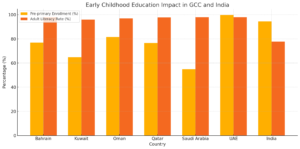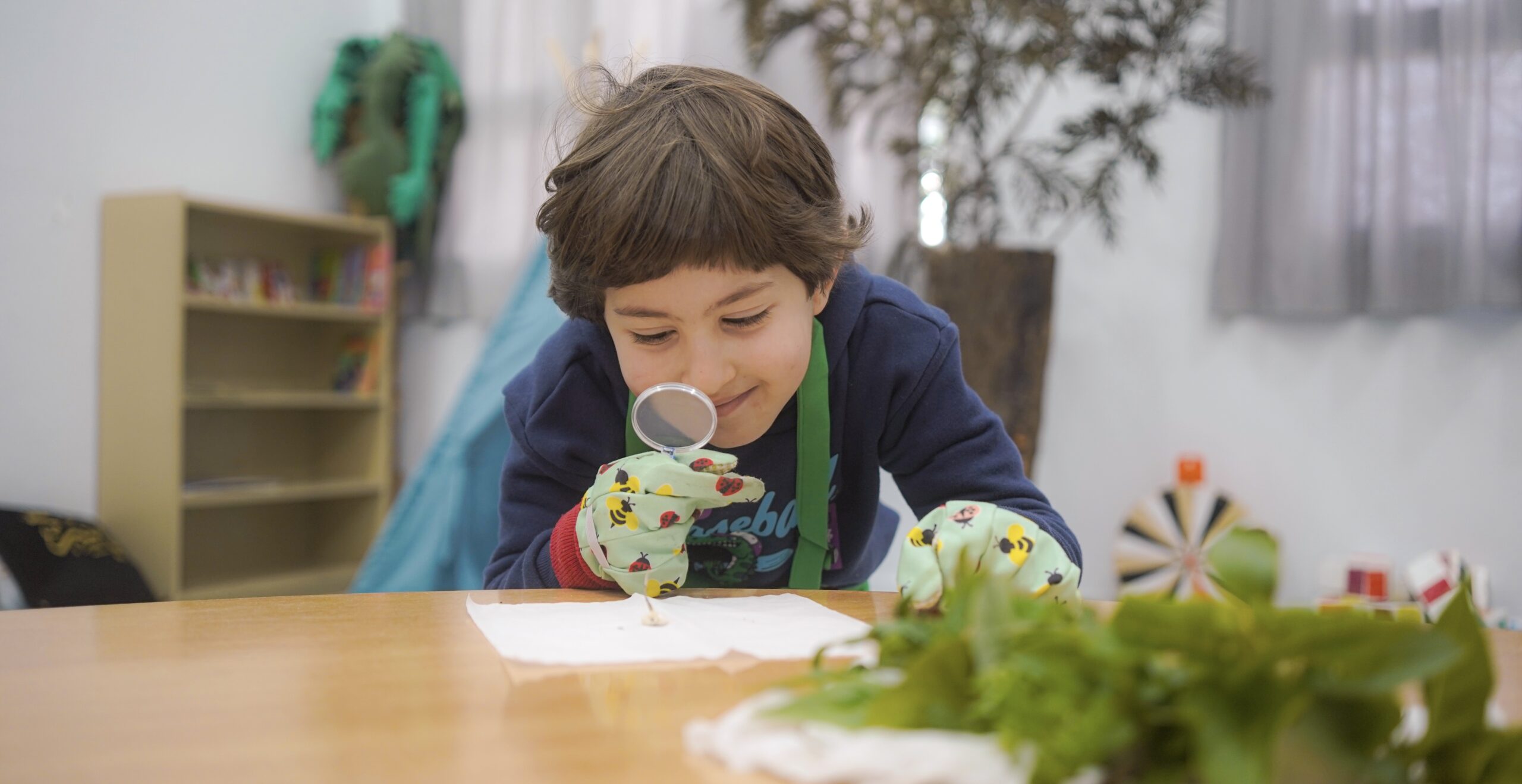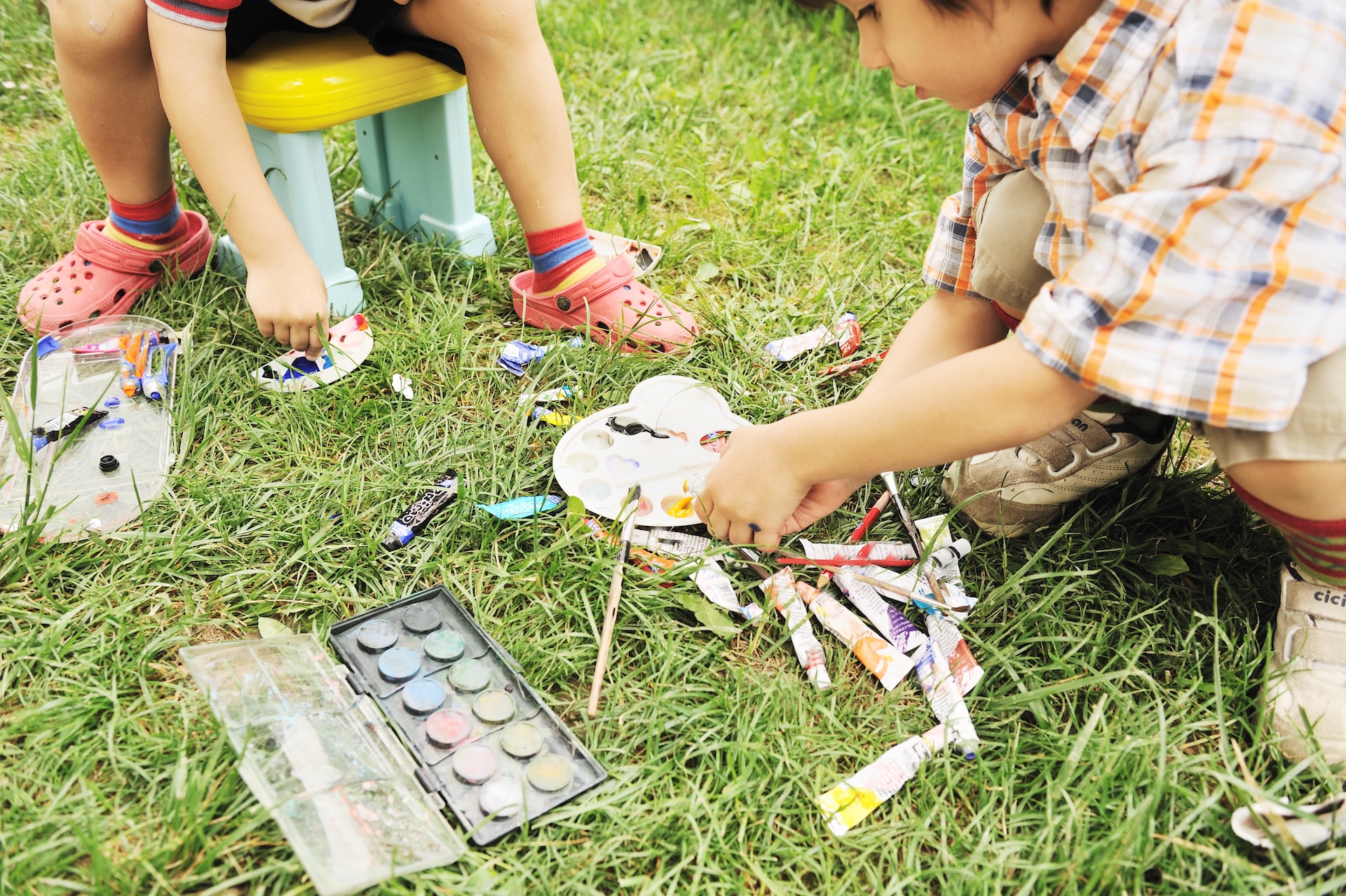Every great journey begins with a single step. In education, that first step starts in early childhood. Before children ever open a textbook or enter a formal classroom, they are already absorbing the world around them – and those early experiences lay the foundation for everything that follows.
Early childhood education (ECE) isn’t just about teaching ABCs and 123s. It’s about nurturing curiosity, encouraging creativity, and building social and emotional skills that shape a child’s future.
From Riyadh to Mumbai, educators, daycare providers, and school managers are recognising that quality early childhood education is the foundation for lifelong learning and success. It’s not just preparation for school—it’s preparation for life.

What is early childhood education and why it matters?
Defining early childhood education in today’s world
Early childhood education typically refers to educational programmes for children from birth to the age of 5 or 6. These programmes include nursery schools, kindergartens, and preschools.
ECE is more than babysitting—it is structured, intentional learning that supports development across five key domains:
- Cognitive
- Physical
- Emotional
- Social
- Language
Different models such as Montessori, Reggio Emilia, or play-based approaches may be used, but the goal remains the same: to help young children grow in a safe, stimulating environment.
Why early childhood education is a critical phase
The early years are often referred to as the “critical window” of development – and for good reason.
- 90% of brain development occurs before the age of five (source)
- Neural connections for language, emotional regulation, and motor skills are formed early
- Habits developed during this stage influence how children think, learn, and behave throughout life
When children are given positive learning experiences during early childhood education, they are far more likely to grow into confident, capable learners.
UNESCO – Early Childhood Care and Education
Long-term benefits of early childhood education
Academic performance and school readiness
Children who attend structured early childhood education programmes often enter primary school with:
- Stronger reading and maths skills
- Better ability to follow directions
- Increased classroom confidence
They’re also more likely to:
- Stay in school longer
- Achieve higher test scores
- Graduate from secondary school and pursue higher education
Bold insight: Early investment in education leads to better academic outcomes across a child’s school years.
Social-emotional growth
Early childhood education isn’t just about academics. It also helps children learn to:
- Share and cooperate
- Manage their emotions
- Resolve conflicts peacefully
- Build healthy relationships
These “soft skills” are essential for navigating school, the workplace, and life.
Economic and Societal impact
nvesting in early childhood education pays off—not just for the child, but for society as a whole.
According to global studies:
- For every $1 invested in quality early education, up to $7 is returned through reduced public spending and increased productivity. (https://heckmanequation.org/)
- Children who attend ECE programs are less likely to need remedial education or drop out.
Table suggestion:
With vs. Without Early Childhood Education
| Outcome | With ECE | Without ECE | |—————————–|———-|————–| | Reading readiness | 85% | 52% | | High school graduation rate | 78% | 55% | | Behavioral issues reported | 22% | 45% |
How early childhood education supports lifelong learning
Creating lifelong learners through curiosity and exploration
Children are naturally curious. When their questions and interests are nurtured in early childhood education, they develop a love for learning that lasts a lifetime.
In ECE classrooms:
- Teachers guide discovery through questions like “Why do you think that happened?”
- Children are encouraged to explore, test, and reflect
- The focus is on how to think, not just what to think
This approach lays the foundation for independent thinking in later years.
Curious how your classroom setup affects learning? Check out our full guide on How to Create an Engaging Learning Environment for Early Childhood Education read more here
Learning through play and creativity
Play is how young children make sense of the world. In early childhood education, it also supports:
- Language development through storytelling and role-play
- Problem-solving through puzzles and games
- Emotional growth through dramatic play and expression
Classrooms that prioritise creative, hands-on learning help build confident, enthusiastic learners.
Laying the groundwork for positive learning habits
In early childhood education, routines and repetition help children learn how to:
- Manage their time and tasks
- Focus on activities for longer periods
- Ask for help and solve problems independently
The role of families and communities in early childhood education
Partnering with parents for lasting success
A child’s learning doesn’t stop when they leave the classroom—it continues at home. Parents are essential partners in a child’s educational journey, especially during the early years.
Here’s how early childhood education providers can engage families:
- Daily updates – Share what the child has learned through apps, notes, or brief conversations
- Home extension activities – Offer simple games or reading suggestions that align with classroom topics
- Workshops for parents – Host short sessions on themes like “How to support learning through play” or “Positive discipline strategies”
When parents feel involved and informed, they are more likely to reinforce lessons at home—making learning more meaningful and continuous.

Leveraging community support and resources
Community involvement can enrich Early Childhood Education programs by exposing children to real-world experiences.
Examples of community partnerships:
- Local libraries for story time or book lending
- Visits from healthcare professionals or artists
- Collaborations with cultural centres during holidays or special events
By connecting the classroom with the wider world, children begin to see learning as something that happens everywhere—not just at school.
Addressing equity and access in early childhood education
Closing the opportunity gap
Not all children have equal access to quality early childhood education. Factors such as income, location, or disability can limit opportunities. That’s why expanding access must be a priority for schools and governments alike.
Strategies to improve equity:
- Subsidised or free preschool options
- Mobile preschools in rural areas
- Programmes tailored for underserved communities
When all children are given the chance to start strong, society benefits as a whole.
Inclusive classrooms for every learner
Every child deserves to feel seen, heard, and included in their learning environment – regardless of ability, background, or language.
An inclusive early childhood education classroom should:
- Use visual aids and sensory tools to support children with special needs
- Reflect cultural diversity in classroom materials and activities
- Accommodate different learning styles and developmental levels
Curious about how to create this kind of space? Visit our article on How to Create an Engaging Learning Environment for Early Childhood Education for actionable ideas.
How to advocate for stronger early childhood education programs
What schools and centers can do
You don’t have to wait for policy changes to make a difference. As an education provider or centre owner, you can be a voice for early childhood education by:
- Hosting open days or information evenings for parents
- Sharing success stories and child development data with the community
- Building partnerships with other organisations or local schools
What policymakers and leaders need to know
Governments and education ministries across the Gulf and South Asia are increasingly investing in early learning – but there’s still room for growth.
Key advocacy points:
- Support teacher training programmes focused on early childhood education
- Fund inclusive and accessible preschool options
- Incorporate play-based, developmentally appropriate curricula

Frequently asked questions: early childhood education explained
Q1: What age group does early childhood education cover?
A: Generally, early childhood education refers to programmes for children from birth up to 8 years old. This includes nurseries, kindergartens, and the early primary years.
Q2: Is play really a form of learning?
A: Absolutely. Through play, children develop problem-solving skills, social awareness, language abilities, and creativity. Play is how children explore and understand the world.
Q3: What’s the difference between daycare and early childhood education?
A: While daycare focuses on supervision and care, early childhood education programmes are designed with intentional learning goals that support structured child development.
Q4: How can I involve busy parents in early learning?
A: Use digital updates, provide short home-based activities, or invite parents to share cultural stories or experiences. Even small gestures can strengthen home–school collaboration.
Q5: Why should schools invest in inclusive education from the start?
A: Inclusion benefits all learners. It creates a respectful, empathetic classroom culture and ensures no child is left behind – academically, socially, or emotionally.
Conclusion: Investing in the future starts early
When we talk about success in school, careers, and life – it all begins with early childhood education.
Creating opportunities for meaningful, inclusive, and play-based learning in the early years sets the stage for everything that follows. It helps children build confidence, develop empathy, and develop a lifelong love of learning.
Whether you’re a daycare provider in Jeddah, a school principal in Dubai, or a policymaker in Delhi – your decisions today help shape tomorrow’s thinkers, leaders, and dreamers.
Let’s give every child the strong start they deserve.





